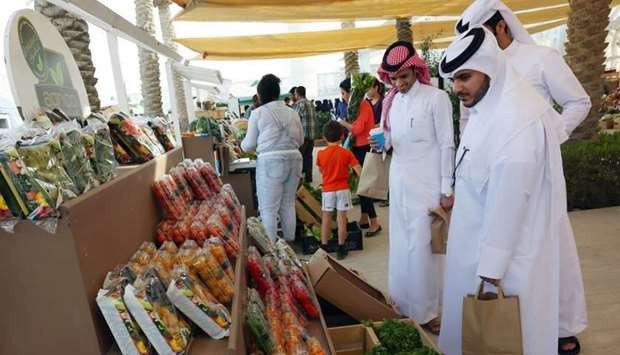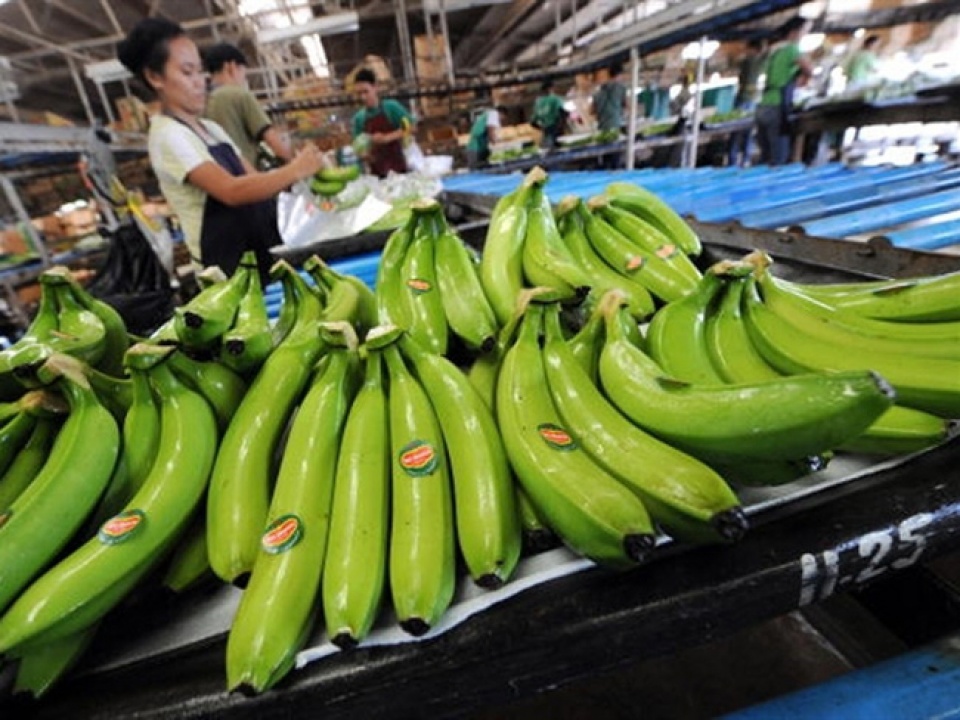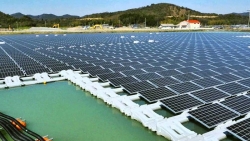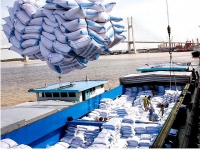
New approaches for Vietnamese enterprises to tap Middle East market's potential
Latest
 |
| The lack of market information is one of the main reasons for the limited trade performance between Viet Nam and the Middle East. (Photo: Gulf Times) |
The good diplomatic relations between Viet Nam and Middle Eastern countries create favorable conditions for two sides' businesses to further strengthen trade and economic cooperation.
According to economic expert, Dr. Can Van Luc, Viet Nam has been active in signing bilateral cooperation agreements for different areas with Middle East countries.
Mr. Nguyen Quoc Hung, General Secretary of the Vietnam Banks Association said that since the approval of the project "Developing relations between Viet Nam with Middle East - African countries in the 2016-2025 period" by Vietnamese Prime Minister, positive progress has been made in terms of the outcomes of trade, investment and economic activities.
The two sides have enjoyed strong development in the fields of trade, science-technology, trade, air transport, industrial development, securities services, labor matters, oil and gas, etc.
By the end of August 2021, Viet Nam exported goods worth 5.22 billion USD to Middle Eastern countries and imported goods worth 5.49 billion USD from the region, contributing 2.45% and 2.5% to the export and import turnover of the country, respectively.
Regarding investment cooperation, by the end of August 2021, there were 173 valid foreign direct investment (FDI) projects of Middle Eastern enterprises in Viet Nam with a total value of 1.38 billion USD, accounting for 0.34% of the total registered FDI in Viet Nam.
Currently, there are 9 of 15 countries in the Middle East, including all major economic partners of Viet Nam in the region, that have opened embassies in Ha Noi.
According to Dr. Can Van Luc, Viet Nam offers a number of investment opportunities for Middle Eastern enterprises.
Firstly, Viet Nam always attaches importance of cooperation with the Middle Eastern countries in many fields. Viet Nam is a huge market with nearly 100 million customers. The Southeast Asian country has always maintained socio-political stability and high, sustainable macroeconomic growth after 35 years of innovation.
Besides, Viet Nam has officially signed 17 free trade agreements (FTA), including the Comprehensive and Progressive Agreement for Trans-Pacific Partnership (CPTPP), EU-Viet Nam FTA (EVFTA), and the Regional Comprehensive Economic Partnership (RCEP). Viet Nam is considered not only an attractive destination for investors but as an effective bridge connecting to other potential markets.
Moreover, Viet Nam attaches great importance to attracting and effectively using high-quality FDI capital. The country's investment and business environment has been substantially improved in a bid to further raise its competitiveness.
Vietnamese enterprises, in the meanwhile, have the opportunity to cooperate with partners from high- level economies with modern infrastructure and high living standards in the Middle East.
 |
| The Middle East is a promising market for Vietnam agricultural produce. (Photo: nongnghiep.vn) |
General Secretary of the Vietnam Banks Association Nguyen Quoc Hung emphasized that the Middle East is an intercontinental area, which shares borders with Asian, European, and African continents. This region is also rich in natural resources with large oil and gas reserves as well as abundant financial potential.
Currently, the region has great demands for garments, footwear, farm produce, electronic equipment, consumer goods, leather and footwear, which are Viet Nam’s strengths.
Besides, the Middle East market is not too fastidious, which is partly favorable for Vietnamese export enterprises.
The most significant difficulty of enterprises is limited information on the business environment, especially those related to legal regulations, market potential and cooperation opportunities. Differences in culture and consumption habits are also an obstacle.
In addition, Vietnamese enterprises also face difficulties in payment because the financial markets of some countries in the region have not yet developed.
Moreover, due to a lack of information about the Middle East market, to avoid risks, Vietnamese enterprises often export through international intermediary companies, resulting in an increase in goods prices and lower competitiveness.
According to Mr. Hung, Vietnamese enterprises have to face fierce competition in terms of goods with other countries such as rice and cereals from India; tea and spices from China and India; and agricultural products from Thailand, Kuwait and India.
To promote and create favourable conditions for economic, energy and trade cooperation between Viet Nam and Middle Eastern countries in the coming time, Vietnamese enterprises need to be more proactive in updating information, carefully researching the market and creatively changing their trade promotion methods to make them more effective.
As advised by economic experts, Vietnamese enterprises should develop long-term plans to enter the Middle East market by paying attention to building a competent workforce with a profound understanding of the region’s culture, language, and trading customs.
| Speaking at the webinar themed “Fostering investment cooperation between Viet Nam and the Middle East: potential, opportunities and new approaches” in Ha Noi on August 26, Deputy Foreign Minister Pham Quang Hieu pledged that the Ministry of Foreign Affairs will closely coordinate with the Ministry of Planning and Investment and other ministries, agencies, and localities to support businesses in promoting bilateral trade and investment partnerships in an effective and pragmatic way. Mr. Pham Quang Hieu highlighted that the Vietnamese Government is committed to creating an open, favorable and fair business environment for Middle Eastern investors investing in Viet Nam or seeking opportunities to do business in Viet Nam. |

| Vietnamese, Scotland firms jointly develop rooftop solar power |

| Efforts made to protect interests of Vietnamese products in EU market |

























